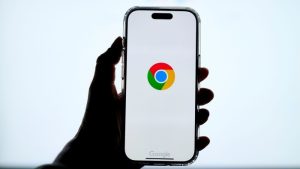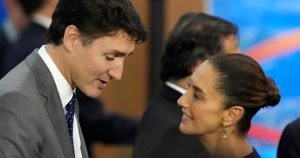Stand-off with bondholders threatens $23bn US satellite merger
Unlock the Editor’s Digest for free
Roula Khalaf, Editor of the FT, selects her favourite stories in this weekly newsletter.
TPG’s bid to form a $23bn US satellite television group able to compete with Netflix is at risk of collapse as the private equity group finds itself in a stand-off with creditors over a debt restructuring on which the deal depends.
DirecTV, the satellite TV provider TPG controls, agreed to pay a nominal $1 last month for Dish Network, its closest rival, offering bondholders about $8bn in exchanged bonds for existing Dish notes with a face value of just under $10bn.
According to documents seen by the Financial Times, Dish creditors have pushed DirecTV to narrow the discount from $1.6bn to about $300mn, but the bidder has refused to change its terms.
Letters exchanged between DirecTV and members of the bondholder group, including BlackRock, show that the two sides are at an impasse, threatening the exchange offer less than two weeks before it expires on October 29.
Holders of two-thirds of the bonds by value must agree to the exchange for the merger to close. Should the offer fail, DirecTV can terminate the deal contract by November 9.
“The [bondholder] group’s expectations, as reflected by the proposal, do not represent terms that DirecTV will accept and further DirecTV has no intention of restructuring terms that were negotiated at length between the parties,” Ryan Preston Dahl, a Ropes & Gray lawyer representing DirecTV, said in a letter sent on Sunday to Lazard and Milbank, which are advising Dish bondholders. “Time is of the essence,” he said.
Dish is a subsidiary of EchoStar, the listed satellite operator controlled by Charlie Ergen. The billionaire has been locked in a fight with creditors of EchoStar and Dish, collectively holding nearly $22bn of debt, for nearly a year as the parent company faces a potential bankruptcy.
Bondholders had sued EchoStar, claiming it had moved Dish collateral out of their reach in an early 2024 manoeuvre.
EchoStar announced a complex balance sheet restructuring last month that included various debt exchanges, capital raises and the planned tie-up between Dish and its longtime rival.
DirecTV hopes the enlarged company can challenge streaming video leaders such as Apple, Disney and Netflix with a satellite TV offering for budget-minded customers. Together, DirecTV and Dish would have 18mn paid subscribers.
DirecTV insisted the discount in its offer to bondholders was necessary to ensure that the new company was not overleveraged. As part of the deal, different Dish bonds would take discounts between 7 cents and 40 cents on the dollar, exchange values that exceed the prices at which they were trading before the merger announcement.
TPG, DirecTV and BlackRock declined to comment. Lazard and Milbank did not respond to requests for comment.
About 80 per cent of Dish bondholders have formed a so-called co-operation group, meaning they have agreed to negotiate a deal with DirecTV as a collective. However, DirecTV has alleged that some bondholders hold credit default swaps and therefore have a conflict of interest because those insurance contracts would give them a windfall payout should Dish be forced into bankruptcy following a cancelled merger.
Cooperation agreements have irritated borrowers and private equity firms, who increasingly allege they raise antitrust concerns by restraining free trade. In its letter, DirecTV alleged that the Dish creditor group threatened to “suppress competition among market participants” and was “limiting [the company’s] ability to restructure”.
TPG in its letter said it would still extend a $2.5bn loan to Dish that it agreed in September, regardless of the status of the merger.
#Standoff #bondholders #threatens #23bn #satellite #merger







